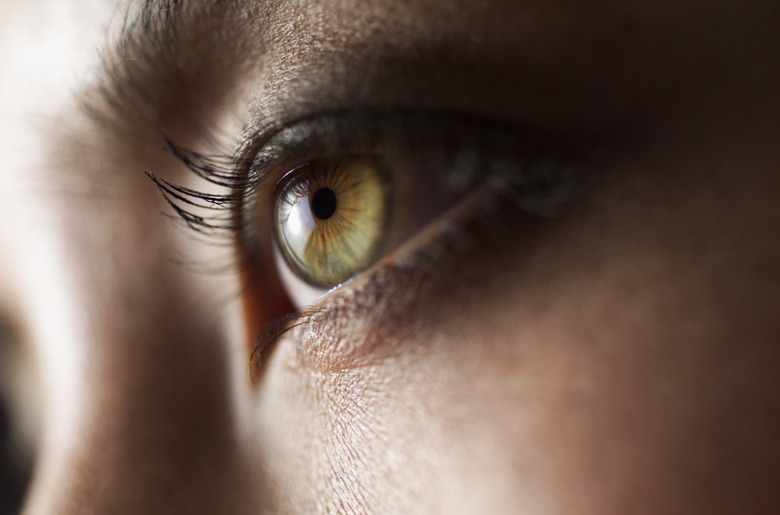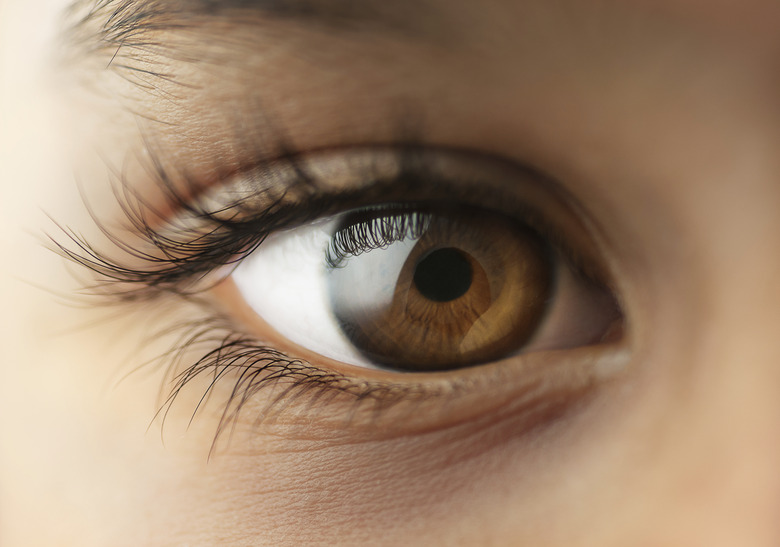Psychological Theory On The Five Human Senses
Our five senses are our connection to the outside world. They send messages to our brain, which interprets the messages and perceives what is around us. A majority of the information that our senses take in is never recognized by our brain. Our experiences, beliefs and culture affect what we notice out of the thousands of stimuli our senses are receiving. Our brain uses information it gathers through our five senses, interprets it and perceives the world around us, creating our life experience.
Sight
Sight
What we see are not objects; we see lightwaves reflected off the objects. Once the lightwaves reach the retina in the back of our eyes, cells called rods and cones convert the waves into neural impulses that travel up the optic nerve to the brain. In order for us to see, our brains must interpret the messages coming from the eyes. Our perception depends on associations between the viewed image and memories in our brain. There are times that our eyes see something in front of us but our brain does not recognize it because there is no reference for it being there.
Sound
Sound
What we hear is actually vibrations created by motion. These waves travel through our ear to the cochlea, where 16,000 hairs (receptor cells) send messages to the brain. As with sight, the brain then interprets the frequency of the vibrations and compares it to memories, perceiving the sound that we recognize. Our ears pick up thousands of sounds, yet our brain selects only those most relevant to the situation for us to hear. Hearing depends heavily on vision. For example, seeing a speaker's face increases how much we hear.
Taste
Taste
When we eat, chemical substances are dissolved by our saliva, which stimulate our sense of taste. Taste receptors, or taste buds, are responsible for recognizing the four sensations of taste: sweet, sour, salty and bitter. The bumps we see are called papillae and contain multiple taste buds (10,000 in total). The information is sent by afferent nerves to the brain (the thalamus and eventually to the cortex), where we recognize the taste as either pleasant or unpleasant. Interestingly, our mood can affect our sense of taste, explaining various appetite changes associated with mood disorders. As with sight and sound, taste is dependent on smell. If you cannot smell, like when you have congested sinuses, food will taste bland. Our brain uses signals from our eyes, nose and mouth when we eat, so when one of those signals is missing, our brain can have difficulty differentiating what we are eating.
Smell
Smell
When you breathe in through your nose, olfactory receptors are stimulated by chemical molecules suspended in the air, and messages are sent to the olfactory bulb at the base of the brain. Smell is the sense most strongly linked to memory. For example, smelling apple pie can trigger a happy memory from childhood. In fact, smelling an odor while experiencing something helps recent memories get recorded into permanent storage.
Touch
Touch
Our skin's three layers, the epidermis, dermis and hypodermis, are made up of millions or sense receptors. Once stimulated by touch, these receptors trigger nerve impulses that communicate with the somatosensory cortex of the brain, relaying information about temperature, pressure and pain. Sensory receptors encode information about everything skin comes in contact with. Neurotransmitters, or brain chemicals, are released into our body, giving us the sensations or feelings. The sense of touch is so important to humans that a lack of touch can lead to physical and behavioral problems, improper brain development, and even death.
Cite This Article
MLA
R, Joeel. "Psychological Theory On The Five Human Senses" sciencing.com, https://www.sciencing.com/psychological-theory-five-human-senses-5933165/. 24 April 2017.
APA
R, Joeel. (2017, April 24). Psychological Theory On The Five Human Senses. sciencing.com. Retrieved from https://www.sciencing.com/psychological-theory-five-human-senses-5933165/
Chicago
R, Joeel. Psychological Theory On The Five Human Senses last modified March 24, 2022. https://www.sciencing.com/psychological-theory-five-human-senses-5933165/





